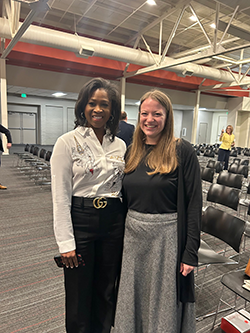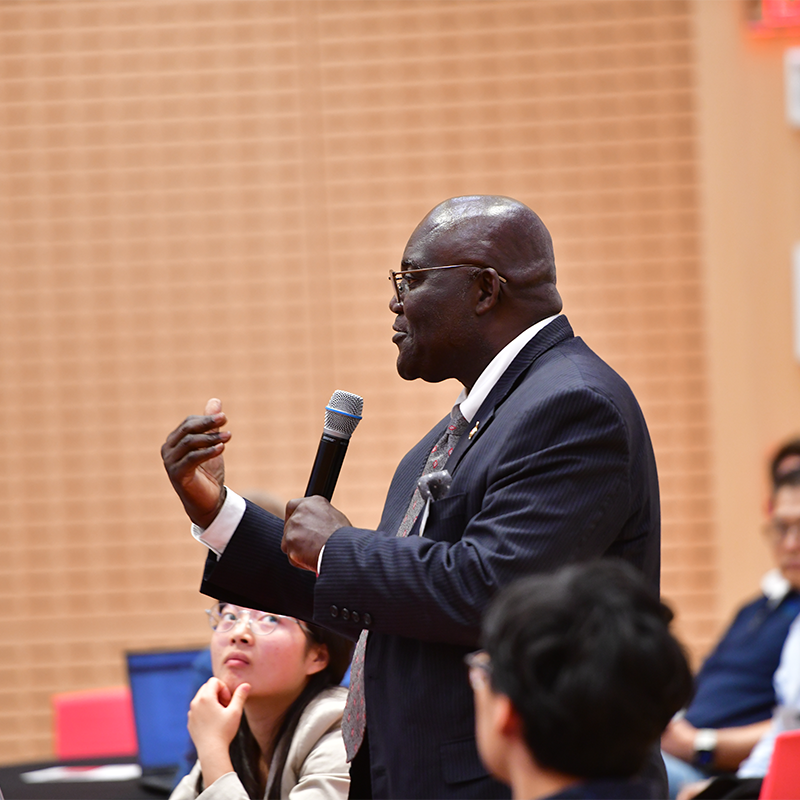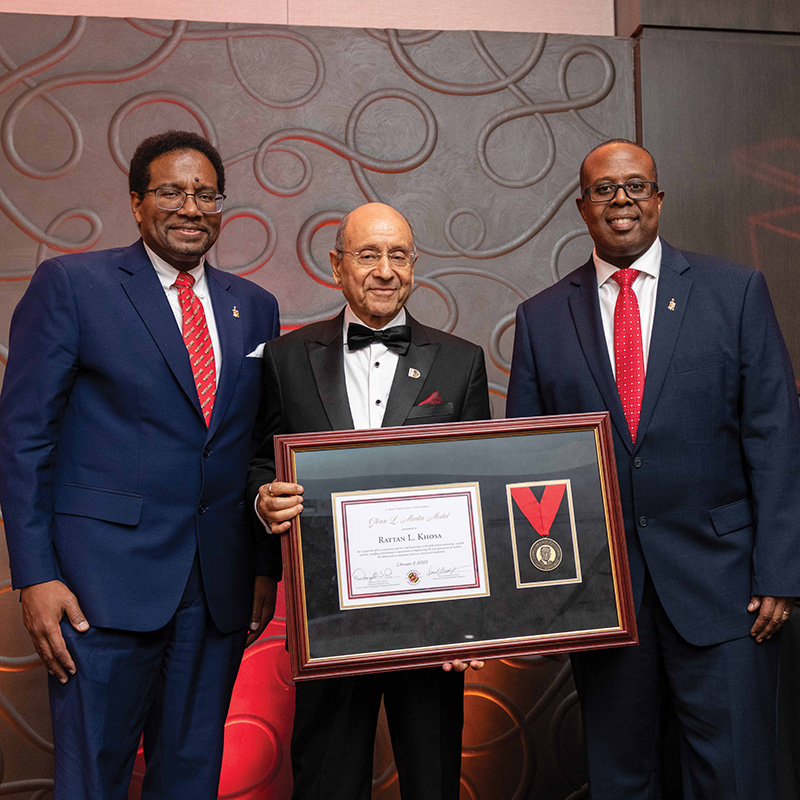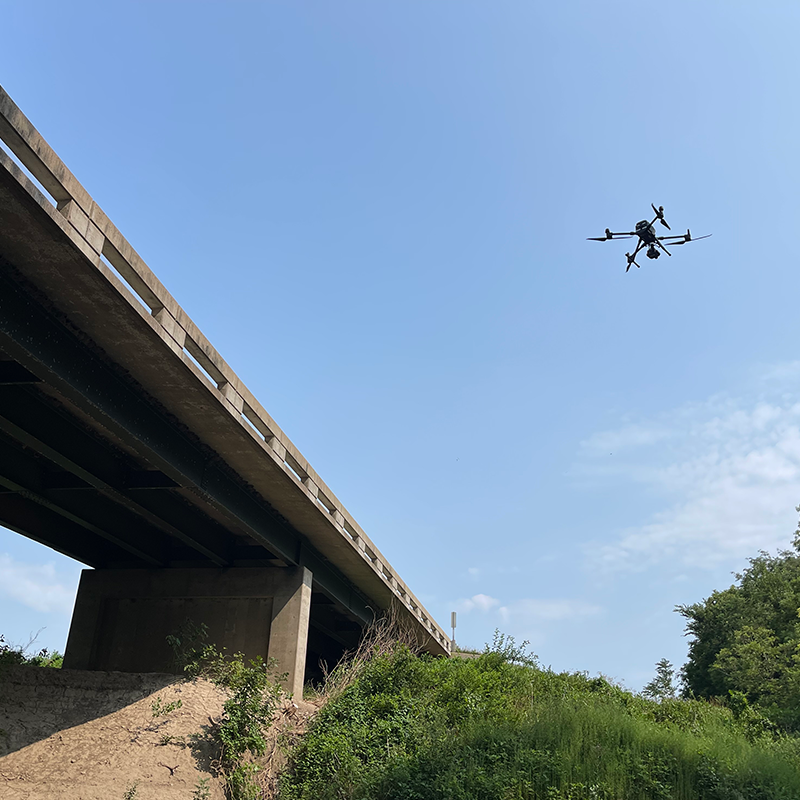News Story
Passionate About Community

UMD civil and environmental engineering master’s student Emily Speierman (right), pictured with Serena McIlwain, Secretary of the Maryland Department of the Environment (MDE), represented the university at MDE’s Women’s History Month celebrations, together with fellow UMD master student Isabelle van Benschoten, Department of Environmental Science.
As a master’s student in civil and environmental engineering at the University of Maryland (UMD), Emily Speierman is helping to track hazards related to septic systems, which can leach bacteria and dangerous pollutants into their surroundings.
When those pollutants are washed away by flooding , they can get into waterways such as the Chesapeake Bay, contaminating shellfish and other sources of food.
Her work has clear significance for the state of Maryland, where more than 420,000 septic systems are believed to be in use–with about 52,000 of these within 1,000 feet of tidal waters. This month, she had the chance to speak with personnel at the Maryland Department of the Environment (MDE) about her research in this critical area.
The opportunity came during MDE’s Women’s History Month celebrations, where Speierman and UMD environmental science and technology graduate student Isabelle van Benschoten represented UMD. “We had the chance to hear from women at MDE and learn about their career paths, people who had inspired them, and some of the challenges they faced during their careers and how they overcame them,” Speierman said.
In turn, Speierman briefed members of the agency—which is responsible for the oversight and permitting of septic systems across the state—about her research, which is part of a $1.35 million, Environmental Protection Agency-funded project being led by UMD Civil and Environmental Engineering Professor Allison Reilly, with Professor Birthe Kjellerup, Speierman’s advisor, among the co-PIs. Speierman’s specific areas of focus include the effects of increased flooding on pathogen removal.
“This is impactful for public health as well as the fishing industry,” Speierman said.“When we have Escherichia coli in the waterways, we can’t eat the oysters that are being produced.”
Speierman was drawn to the UMD civil and environmental engineering program because of her desire to conduct work that will not simply sit on a shelf, but impact policymaking and improve quality of life. “The work we’re doing could be considered by MDE when it revises its regulations or makes new ones,” she said.
Earlier this year, her dedication to environmental issues and her active involvement in the campus engineering community earned her the Robert L. Morris Award in Environmental Leadership, which honors students who have demonstrated through extracurricular activities a commitment to environmental stewardship, ethical engineering practice, or sustainable technology.
Kjellerup, her advisor, said the award as well as Speierman’s participation in the MDE event both reflect her enthusiasm and community focus.
“She’s interested in making things better, not just one person at a time, but communities at a time, and she gives so much of herself,” Kjellerup said. “For her, it’s not just about the ivory tower. She wants to get out there and make a difference for Marylanders.”
Published March 27, 2025









